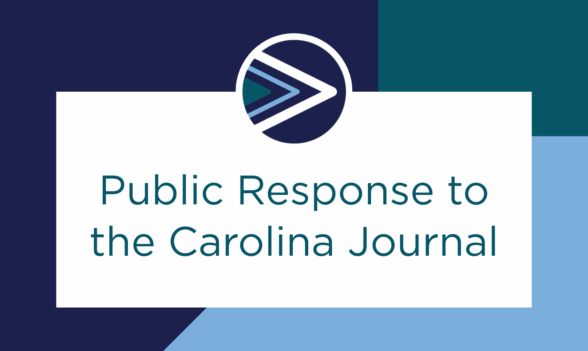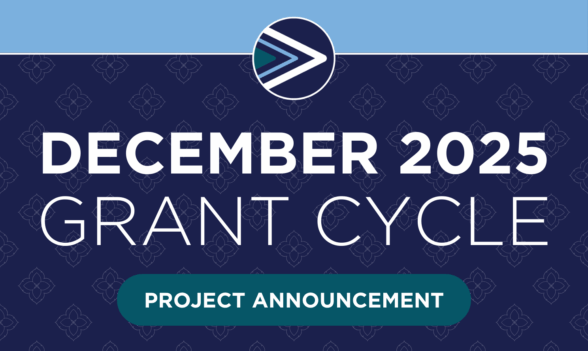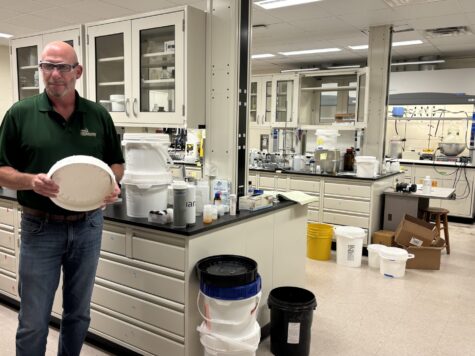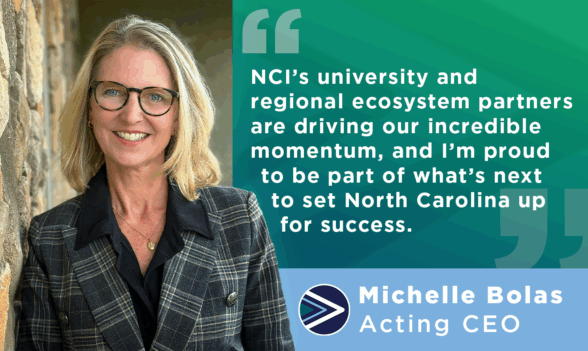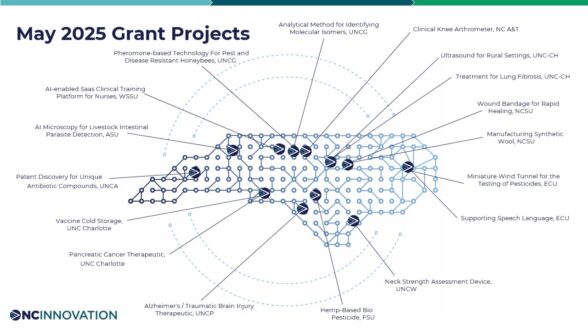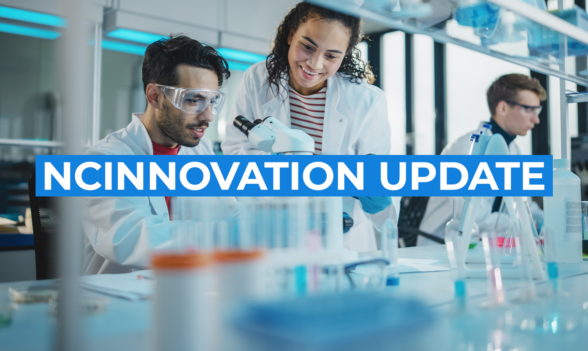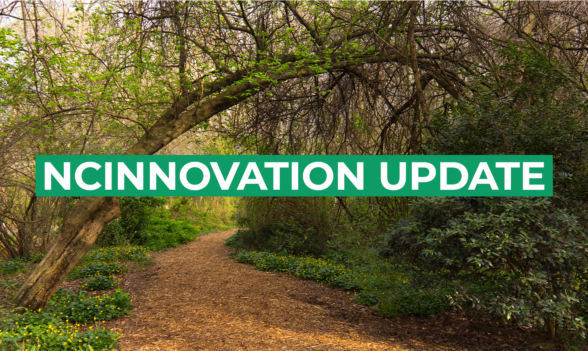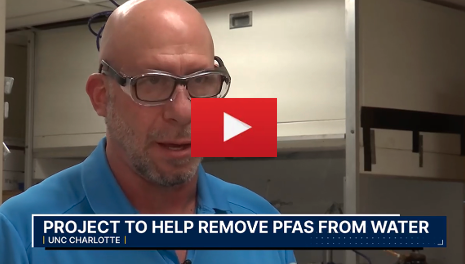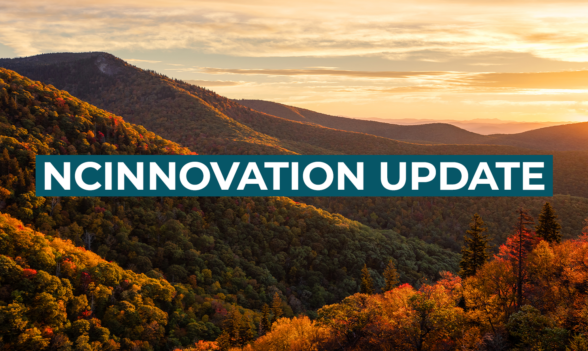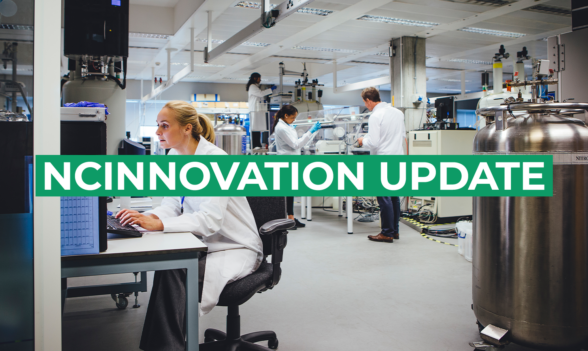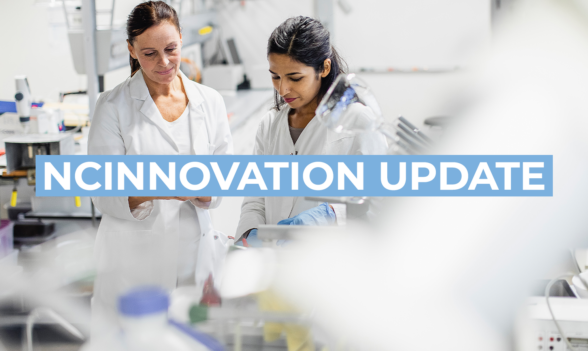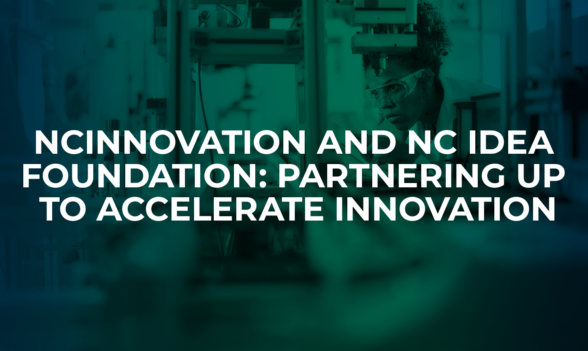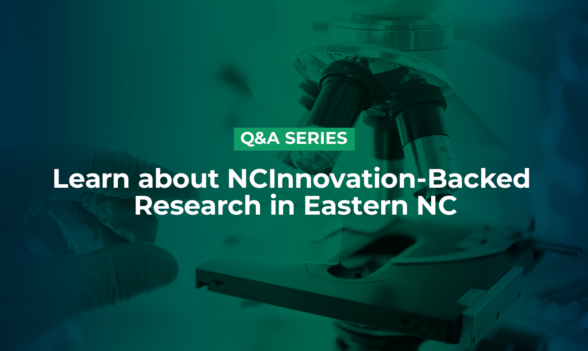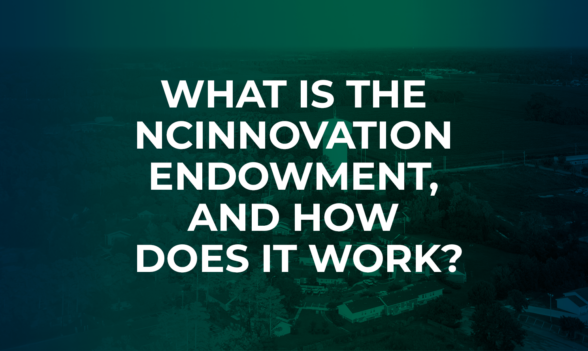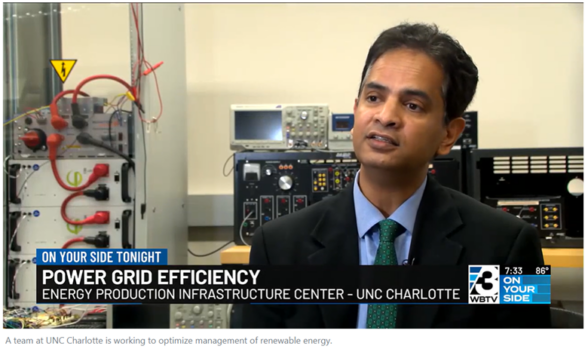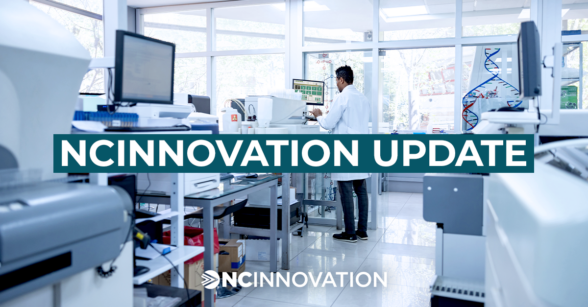NCInnovation Approves $5 Million to Support Eight University Research Projects
Milestone marks NCInnovation’s first grant approvals, just four months after receiving state funding
Grants entirely funded from interest earned on NCInnovation endowment
NCInnovation, a non-profit organization that helps unlock the innovative potential of North Carolina’s world-class public universities, approved $5.2 million in research funding for eight research projects at seven North Carolina public universities. The approvals mark NCInnovation’s first research grants, coming just four months after the organization received state funding.
The grants will support applied research that has already achieved proof of concept in areas from power grid efficiency to lithium processing to cancer research. Funding approval is conditioned on standard next steps, including executed grant agreements and formal notification to government partners.
“North Carolina’s public universities are home to top-notch researchers developing truly amazing technologies, from melanoma treatment to lithium processing to drinking water purification,” said Bennet Waters, CEO of NCInnovation. “NCInnovation helps public university researchers advance their work through the university R&D process toward commercialization, strengthening the university-to-industry pipeline that’s central to American innovation.”
“When I took this job last year, some suggested to me that universities outside of the Triangle won’t have enough compelling applied research worth supporting. It’s just not true! There is incredible work going on at universities all over North Carolina that people don’t know about, but they will now,” said Michelle Bolas, Executive Vice President and Chief Innovation Officer of NCInnovation. Bolas formerly led research commercialization at UNC-Chapel Hill.
The grant approvals are the culmination of NCInnovation’s initial pilot program, which contemplated a small group of grant awardees working on research that is already fairly advanced. The pilot grants allow NCInnovation to make any procedural adjustments that might be necessary before scaling its grant program to a full statewide application process later this year.
NCInnovation grant applications undergo rigorous evaluation. Applicants underwent a multi-phase review process that included a pre-application, a full application, an external expert review panel, and a market fit assessment led by RTI International. Only university researchers are eligible for NCInnovation support. Private companies are not eligible.
NCInnovation’s Board of Directors, the majority of which is appointed by the North Carolina General Assembly, approved the following eight projects, which have achieved proof-of-concept, show commercial promise, and have the potential to drive job creation and economic growth across the state:
Lithium Refining, UNC Greensboro
Hemali Rathnayake, Ph.D., Professor, Nanoscience, has led the development of a cost-effective and efficient lithium refining process for converting lithium into battery-grade lithium carbonate (LCE). The global demand for lithium is experiencing substantial growth for its primary role in energy storage, electronic bikes, electrification of tools, and other battery-intense applications. Right now, China controls approximately 65% of the world’s lithium refining capacity. North Carolina has a large and growing lithium and battery industry. Dr. Rathnayake’s refining technology has the potential to boost a sustainable domestic supply chain for lithium-based products.
Melanoma Treatment, East Carolina University
Rukiyah T. Van Dross-Anderson, Ph.D., Associate Professor of Pharmacology, is developing a first-of-its kind cancer immunotherapy for melanoma patients to eliminate the cancer cell and prompt the immune system to seek out and destroy other cancer cells. The immunotherapy is for melanoma patients who do not respond to current treatments. Dr. Van Dross-Anderson hopes her work will increase survivability and reduce melanoma recurrence.
Drinking Water Purification, UNC Charlotte
Jordan Poler, Ph.D., Professor of Chemistry at UNC Charlotte, has developed patented materials that remove compounds prohibited by the U.S. Environmental Protection Agency from drinking water more effectively than solutions currently available in the marketplace.
Power Grid Efficiency, UNC Charlotte
Grid Ancillary services with Uninterruptible Power Supply (“GAUPS”), developed by Dr. Sukumar Kamalasadan, Ph.D., provides uninterrupted, pristine power quality to sensitive load customers, such as commercial or industrial companies where prolonged power outages could cause economic, health, environment, or public safety problems. The technology simultaneously delivers reserve capacity and essential ancillary services to utilities to address unexpected faults and improve reliability.
Multi-Year Vaccine Development, UNC Wilmington
UNCW researchers led by Ying Wang, Ph.D., Associate Professor, Chemistry, have crafted a groundbreaking vaccine platform they hope will result in a universal and longer-lasting flu vaccine. Right now, flu vaccines do not target every strain, and they must be given every flu season – a reality Dr. Wang hopes to change.
Mosquito-Borne Infectious Disease Identification and Risk Assessment, Western Carolina University
Brian Byrd, Ph.D., Professor, Environmental Health Sciences, is working on a device that utilizes spectroscopy to analyze vibrational signals from mosquitoes. In this way, researchers can draw conclusions in a matter of minutes about species, sex, infection status, and more from a sample of mosquitoes in the wild – work that takes days or weeks right now. Dr. Byrd’s research has applications for tracking mosquito-borne diseases like dengue fever and Zika.
Beehive Improvement and Monitoring System, Appalachian State University
The Beemon system, developed by Dr. Rahman Tashakkori, Ph.D., presents a unique and innovative tool for decreasing honeybee hive die-off and increasing hive production. This project aims to produce turnkey products for commercial and amateur beekeepers to monitor hives while providing data that can be used to preserve the health of honeybees more efficiently and accurately. A recent study found honeybee colonies, which are vital to agriculture and the food supply, have been dying at staggering rates.
Neuro Drug Delivery System, N.C. A&T State University
The blood-brain barrier prevents many drugs from effectively treating neurodegenerative diseases such as Alzheimer’s disease. Kristen Dellinger, Ph.D., Assistant Professor, Nanoengineering, has led the development of a novel method to carry therapeutic agents across the blood-brain barrier, improving the delivery of therapies.
The NCInnovation grant funds will be disseminated through the existing grant distribution system of the North Carolina Collaboratory.
Grant recipients will receive funding in tranches provided they meet specific project milestones outlined in cooperative agreements. As part of NCInnovation’s cooperative agreements, and as required by law, any companies that emerge from research funded by NCInnovation grants must maintain their headquarters and principal place of business in North Carolina for a minimum of five years, among other requirements. NCInnovation plans to launch a full statewide grant process later this year. For more information and updates, please visit NCInnovation.org and follow the organization on LinkedIn here.
NCInnovation, Inc. is a Research Triangle Park, NC-based 501(c)(3) public-private partnership designed to accelerate commercialized innovation from North Carolina’s research universities. Backed by more than $25 million in private philanthropic commitments, NCInnovation uses the interest and income from a $500 million State-funded endowment to provide non-dilutive grant funding, mentors, and support services so that North Carolina university proofs-of-concept return value to the regional communities that created them. Learn more at NCInnovation.org.
